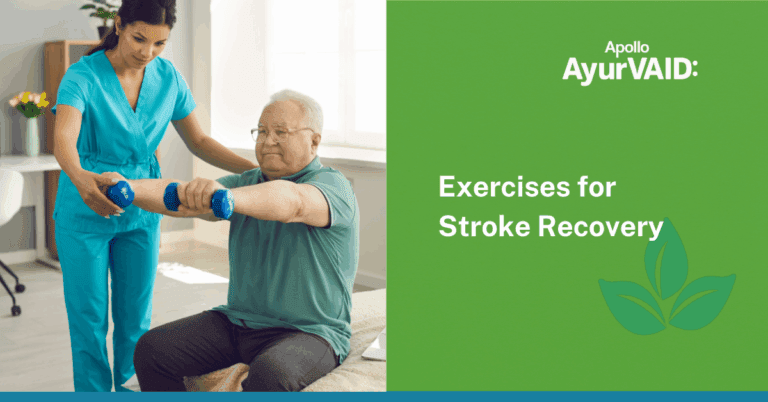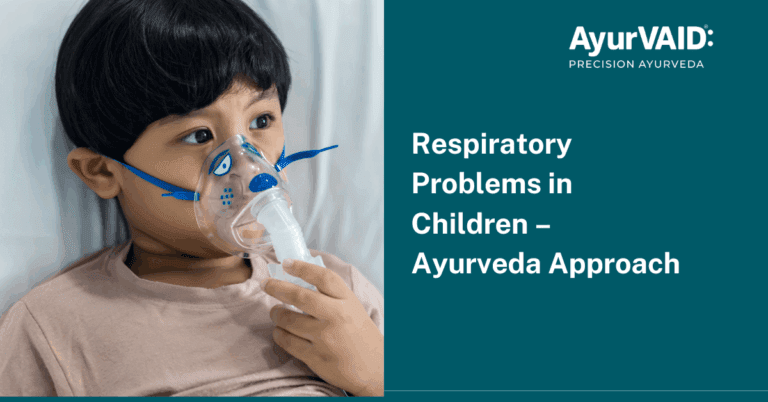Introduction
I understand that words such as breast cancer or stage 3 breast cancer can arrive like an unwelcome thunderstorm—sudden, alarming, and emotionally draining. Whether you are reading this because you felt a change, are supporting someone you love, or simply want to protect your future health, please know your concerns are heard and valid. Ayurveda teaches us to care for the whole person — body, mind, and soul — and that compassionate, practical beginning helps transform fear into steady action.
To act wisely, we first need to understand what is breast cancer and the common causes of breast cancer. Let’s learn all these in this blog.
What is Breast Cancer?
Biomedically, breast cancer means abnormal, uncontrolled growth of cells in breast tissue that can form tumours and sometimes spread through lymphatic channels or the bloodstream.
Several interacting factors increase the likelihood of this process:
- Inherited genetic mutations such as BRCA1 and BRCA2
- Hormonal influences, including prolonged exposure to estrogen (for example, early menarche or late menopause) and therapeutic use of hormones.
- Advancing age and reproductive patterns, such as late first pregnancy or limited breastfeeding, are contributing factors.
- Excess alcohol, postmenopausal obesity, physical inactivity, poor sleep, and stress disrupt metabolism, cause inflammation leading to increased risk.
- Occupational exposures and prior chest radiation increase the risk in specific groups.

Breast Cancer—An Ayurveda Perspective
Breast cancer can be correlated to conditions like Stana Granthi or Arbuda mentioned in Ayurveda. It is caused by abnormal tissue growths, affecting Mamsa (muscle tissue) and Rakta (blood) respectively. The three-dosha derangement is the main cause of any disease manifestation.
- Imbalanced Kapha leading to excessive cell proliferation
- Imbalanced Pitta leading to inflammatory processes
- Imbalanced Vata leading to metastases spread
- Srotoavarodha (blockages of channels) prevent natural detoxification.
Agni (digestive fire) disturbance leading to the accumulation of Ama(metabolic toxins) also plays an important role, ultimately leading to chronic diseases.
Why staging matters: When clinicians say stage 3 breast cancer, they refer to locally advanced disease with either a larger primary tumour or significant regional lymph node involvement, but without distant metastasis.
Staging directs therapy and prognosis, which makes early detection and prompt referral essential. Regular breast check-ups, timely clinical intervention, and adherence to screening guidelines are life-saving measures.
Ayurveda supports risk reduction by restoring metabolic balance, reducing chronic inflammation, and strengthening overall resilience. At Apollo AyurVAID, we practiceintegrative care : dietary guidance, lifestyle prescription, Rasayana (rejuvenation), and physician-supervised Panchakarma are offered alongside modern screening and treatment. Importantly, Ayurveda therapies are tailored to an individual’s Prakriti and current imbalance (Vikriti) and coordinated with oncology teams so that herbal medicines and procedures are safe and complementary to conventional care.
Practical Ayurveda strategies to lower risk
- Strengthen Agni and reduce Ama — begin the day with warm water, maintain regular meal times, and favour freshly prepared, easily digestible foods. Stay away from overnight, heavy, processed, oily foods that can contribute to poor digestion and the formation of toxins.
- Maintain a healthy weight — practice daily activities such as walking briskly, yoga, and pranayama to promote lymph drainage, circulation, and reduce the inflammation related to Kapha imbalance.
- Use foods with anti-inflammatory and antioxidant properties — foods like turmeric (curcumin), ginger, cumin, coriander, carom and fennel seeds, leafy greens, whole grains, and seasonal fruits. Use herbal supplements only under qualified supervision to ensure standardised doses and safe interactions.
- Consider physician-supervised Rasayana and gentle Panchakarma — individualised rejuvenation and carefully monitored cleansing can nourish Dhatus and reset metabolism when clinically appropriate; avoid unsupervised detox regimens.
- Regular screening and self-assessment— monthly breast self-exams, clinical breast examinations, and imaging, as recommended — to identify changes more quickly and reduce the chance of progression.
- Manage stress and sleep—stress reduction practices, Abhyanga (self-oil massage), restorative breathing, and regular sleep support the hormone balance and immune resilience.
- Remove known harms — decrease alcohol use, don’t smoke, and have conversations about hormone therapies with your doctor.
A simple, mindful practice of a daily routine makes life easy. Warm water and a light oil massage on waking, 10-20 minutes of gentle yoga and pranayama, three balanced meals spaced to support digestion, a short post-meal walk, and a calming evening ritual to encourage restful
sleep. Over months and years, consistent practice of these small habits builds metabolic resilience and reduces long-term risk factors of the disease.
Community and family support amplify individual efforts. During breast cancer awareness month (October), sharing accurate information, encouraging screening within families, and creating environments that make healthy choices easier all strengthen prevention at the population level. At Apollo AyurVAID, we pair community education with individualised care — because prevention is both personal and social.
Be gentle with yourself. Not every risk can be eliminated. Genetics and chance are real, but many meaningful, modifiable factors lie within reach. Ayurveda offers a time-tested method to improve digestion, reduce ama formation, calm the mind, and nourish tissues, whereas modern oncology provides precise diagnostics and targeted therapies. Integrative and coordinated care strengthens the patient, prevents disease where possible, and supports healing.
During this breast cancer awareness month and throughout the year, let us focus on compassionate empowerment. Learn the signs, keep up with recommended screenings, nurture your Agni, and seek qualified, individualised Ayurveda guidance when appropriate. At Apollo AyurVAID, we stand for clinical rigour, empathetic listening, and evidence-informed Ayurveda—helping people transform worry into steady, health-promoting action and build lasting resilience.
References
A review on integrative approaches in oncology: bridging conventional medicine and complementary therapies. Front Nat Prod. 2025;1:1635197. 📖
Risk Factors and Preventions of Breast Cancer. PMC. 2017. 🔍
Integrating ayurvedic medicine into cancer research and care: A systematic review. PMC. 2022. 📑
Role of Ayurveda medicine in the management of cancer patients. J Ayurveda Integr Med Sci. 2024. ➡️






